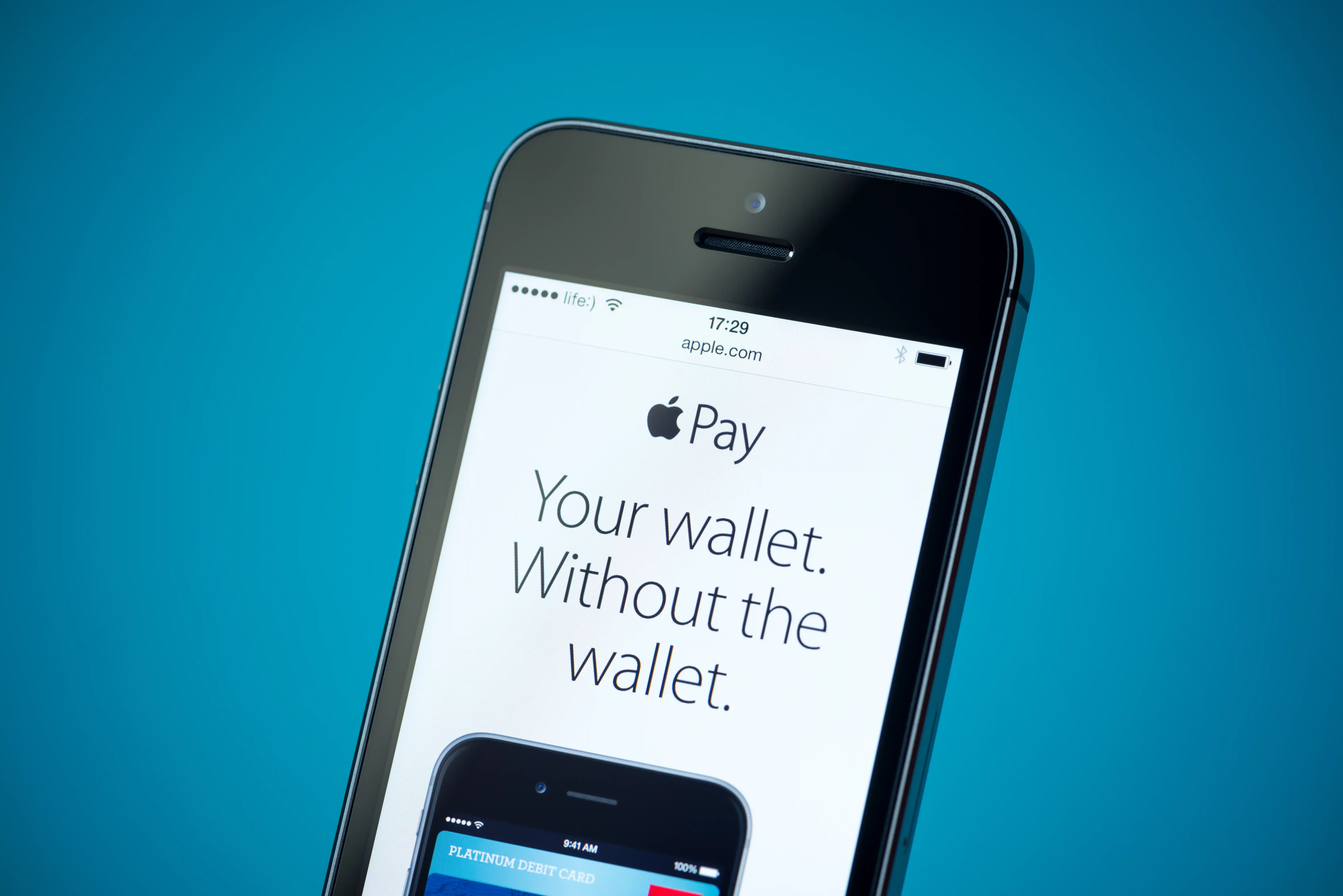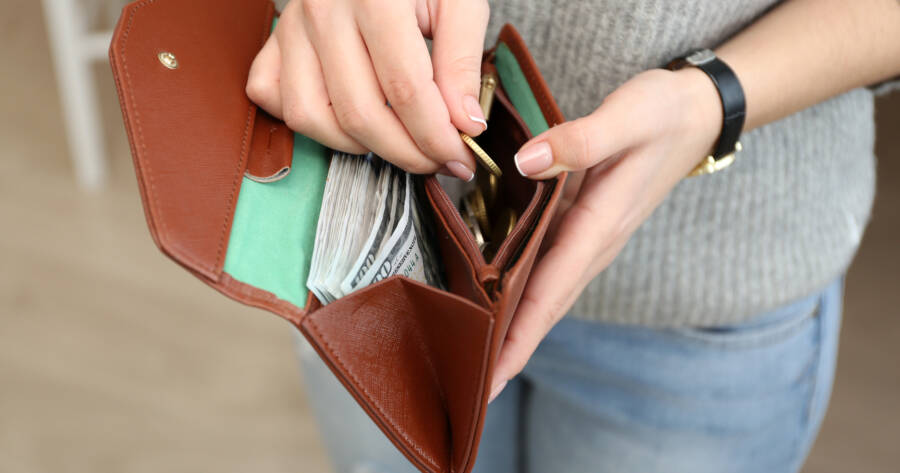Smartphones have become so much more than simply being a mobile phone. Today, we use them for a lot more than making calls and sending texts (actually, who even makes actual phone calls anymore, anyway?). Our devices have become so advanced that they have replaced many physical items we used to depend on. One of the big changes brought about by new technology is how to consider the traditional wallet. It used to be an item of utmost importance, stuffed with all the things we might need while out of the house. However, the days of lugging around a fat, overstuffed wallet are basically over, thanks to the numerous digital alternative now available. Whether it’s your wallet app or somewhere else on your phone, here are all the things you can stop carrying around in your physical wallet.
Photos
Let’s start with the obvious – photographs. Are you old enough to remember that physical photos actually come in a small size, made especially for wallets? These “wallet-size” photos were made with specific dimensions, designed to fit into those little plastic photo sleeves that most wallets come with. However, with the advent (and quick improvement) of cell phone cameras, there’s no longer any need to keep photos in your wallet.
To show someone a photo today, all you needs to do is break out your smartphone. Let’s be honest, you probably have hundreds (if not thousands) of photos already in your camera roll. It’s infinitely more than the half-dozen photos that you used to cram into your wallet. You can now store even more, if you use a cloud storage solution like iCloud, Google Photos, or Prime Photos. Best of all, these digital photos will never fade, get damaged, or get lost.
Spare Change
Change is going the way of the Dodo bird. It wasn’t long ago when we all had pennies, nickels, and quarters jangling around in our wallets. However, a lot of people no longer use cash to pay for much of anything. There’s almost never a practical use for spare change anymore. Like it or not, we are quickly becoming a cashless society.
Now that people primarily make payments with their smartphone or by tapping a debit card, there is no need to carry around spare change in our wallets. Even the smallest of payments can made with a quick tap or PIN code. Some countries, such as neighboring Canada, have already done away with the penny entirely.
Receipts
Our wallets used to be stuffed with receipts. Whether it was store receipts or work-related expenses like toll booths and food purchases, there was a tendency to keep everything. For a certain generation, it was quite common to have wallets crammed with paper records of various transactions. You never knew when you might need one of those receipts for a refund, expense report, or tax return.
However, today most merchants prefer to email receipts directly to you. It alleviated the need to carry around paper transactions, which are also easily lost or damaged. This can lead to overstuffed inboxes, sure, but it’s still better than carrying around a small pile of crumbled receipts. If you need to track receipts (for work or tax purposes), there are some great apps that let you take photos of your receipt for digital safekeeping, allowing you to toss the paper copy almost immediately.
Store Loyalty Cards
People used to keep a lot of plastic in their wallets. Much of that plastic was in the form of store loyalty cards. These cards had barcodes on the back, allowing the cashier to scan them every time you visited. You could score discounts or earn points toward future purchases and other rewards. However, there’s no need for these things anymore.
Don’t get us wrong, the loyalty cards still exist. In fact, there are more than ever. However, now you can keep all these loyalty cards in your Apple or Google Wallet. Or you can just tie your loyalty card to your phone number, which the store can easily look up if you verbally tell them your digits. You can even gather all your loyalty cards into a single app, like Stocard or Key Ring.
Contact Names and Numbers
Along with receipts, the other paper that people used to carry around in their wallet was contact names and numbers. All the important numbers you didn’t have memorized were on a little folded piece of paper, stuffed in your wallet with everything else. For many people, it was an important safeguard in the unlikely event of facing some emergency situation.
Obviously, there’s no need to carry around physical contact information anymore. You can tore all the names and numbers you’d ever need (and more) in your smartphone. With digital assistants like Siri, you don’t even need to type anything to call someone in a hurry. Just say, “Hey Siri, call Dad,” and the phone starts ringing. No fumbling through your unorganized wallet to track down the right number.
 Shutterstock
ShutterstockCredit Cards
Virtual wallets or other wallet apps are growing in popularity, especially as the technology becomes more secure. Virtual wallets allow you to make purchases with your phone, using NFC technology. It’s basically the same as having your physical credit card on hand.
A growing number of stores and restaurants have the technology in place that allows people to pay with a virtual wallet rather than a physical card. Services like Apple Pay and Google Pay can be linked to one or more credit card accounts, alleviating the need to carry plastic in a wallet. The potential exception, though, is that some of these ‘Tap to Pay’ options have an upper limit on how much can be spent. If youre routinely spending more than that limit, you may need to keep your physical credit card on hand.
Coupons
Who doesn’t like saving a few bucks when shopping? Going to the grocery store (or other stores, even) used to mean carrying around paper coupons in a wallet or purse. After all, you want those discounts, right. Today, there is an entire industry built around virtual coupons.
Apps such as Coupons.com, Ebates, and Checkout 51 all enable people to use coupons stored on their phone, without having to fish around for them in a wallet or purse. This has made the world of couponing much easier and more accessible to shoppers.
Insurance Cards
Insurance cards for automotive, home, and life policies used to be ubiquitous in people’s wallets. There are also insurance cards for health, dental, and vision policies too. These insurance cards used to add a lot of bulk to people’s wallets — especially when you needed to carry multiple cards from different companies.
The good news is that these insurance cards have mostly gone digital. You can carry your proof of insurance safely and securely in your smartphone. Another good option is to simply take a photo of the insurance card and store it in your camera roll. Then keep the physical copy somewhere safe in your house. That way, you still have the information on hand should you ever need it.
Checks
If there’s one financial instrument that’s really become outdated, it has to be checks. Can anyone remember the last time they actually took time to write out a check? As already mentioned, there are so many ways to make virtual payments today. There’s almost no reason to use checks.
Multiple apps and services are now available that allow you to send money directly from your bank account, using just an email address or username. Using a money transfer app means you don’t have to carry around checks any longer. Who even accepts them as a legitimate form of payment anymore, anyway? Instead, check out apps like Venmo, Cash App, or Dwolla.
Business Cards
Collecting business cards used to be a bit of an art form. Those who went to conferences or had in-person meetings used to make the rounds and collect business cards from everyone they met or interacted with. This came in handy for future contacts and outreach, particularly in sales.
Now though, the use of smartphones has alleviated the need to collect business cards. Any and all information can be stored in the contacts section of a phone. If you’re old school enough to still love being able to hand out and collect little paper cards, you can also just take photos of them and create a ‘Business Cards’ folder in your phone’s photo library.
 Shutterstock
ShutterstockIdentification
It’s still a good idea to keep some forms in identification in your wallet. For example, we still recommend you carry around your driver’s license. Other forms of ID, though, like a birth certificate or Social Security Number, are no longer required. Store that information digitally, in your phone, instead. Keep the originals safe at home.
It’s still more likely that a physical wallet will be stolen. Even if your smartphone is nicked, chances are the thief can’t unlock it anyway. It’s only going to be good for spare parts. So the information will be safe in your phone, whereas keeping in your wallet makes it much more vulnerable.
Cash
Just like you no longer need to carry around spare change or credit cards in a wallet, you absolutely do not need to carry cash with you anymore either. Especially large sums of cash. It’s gotten to the point where even going to an ATM has become cumbersome. While cashless payments where always on the rise before the pandemic, they’ve hit new heights with businesses and citizens doing what they can to limit unnecessary contact.
The various direct payment apps that are now available for smartphones is pushing us to a cashless society. Wallets that used to hold cash have largely been replaced by smartphones. This can be viewed as both a blessing and a curse — if computer systems fail or networks go down, you’ll be thankful you had some cash on hand. However, that’s a rare occurrence. Contactless payments are simply the way of the world now, in most places.
The Bottom Line
It’s a brave new world and one that is increasingly digital. Consumers now rely on virtual versions of things to get by in their daily lives – whether their credit cards or personal contacts. This may be unsettling for some people but it has led to a lighter and leaner wallet for most.
The key is to embrace technology and the way that the world is heading. Rather than fear the future, use the latest and greatest inventions to help make your life simpler and more secure. Having a virtual wallet is one way to help streamline your life and make it more accessible.








